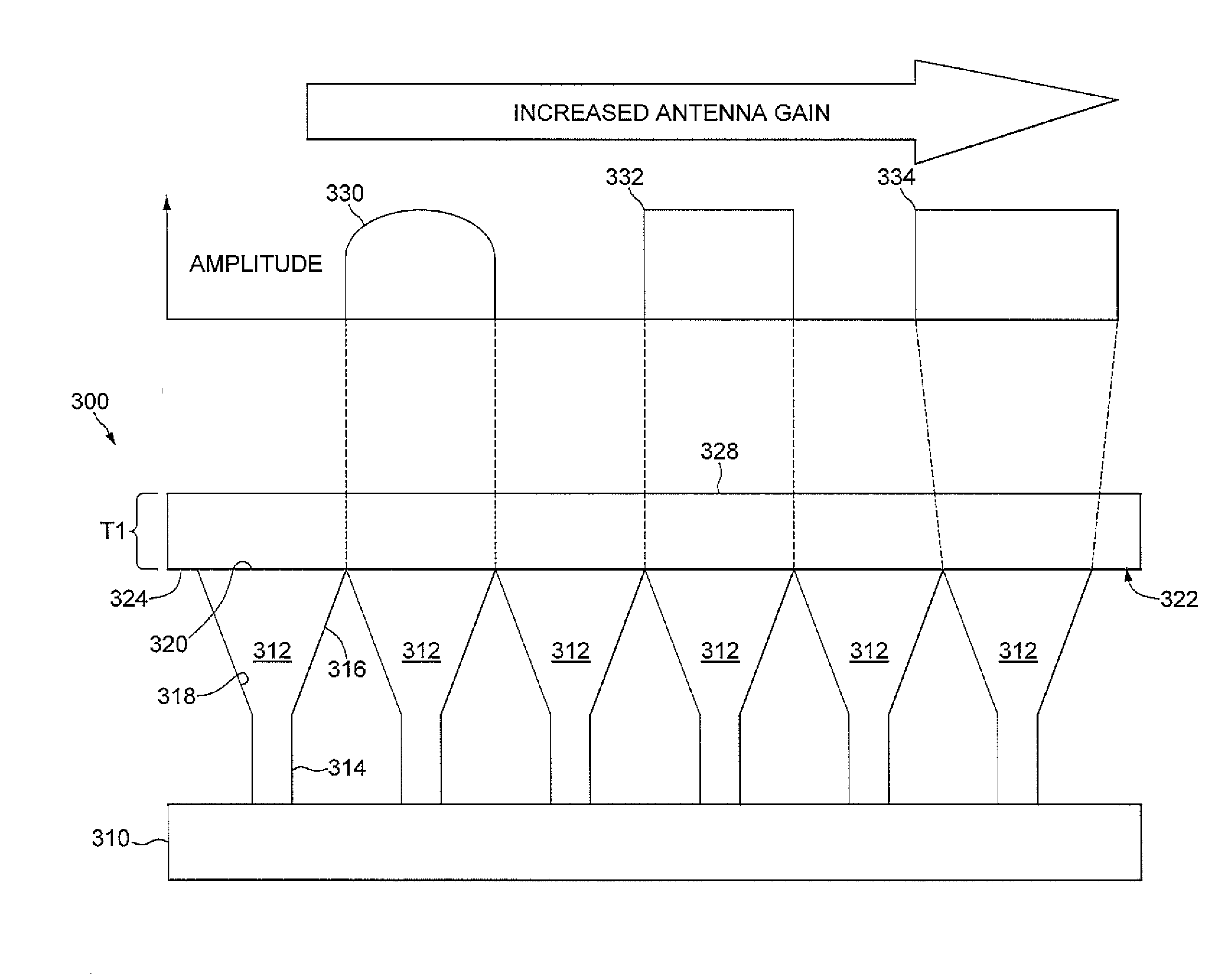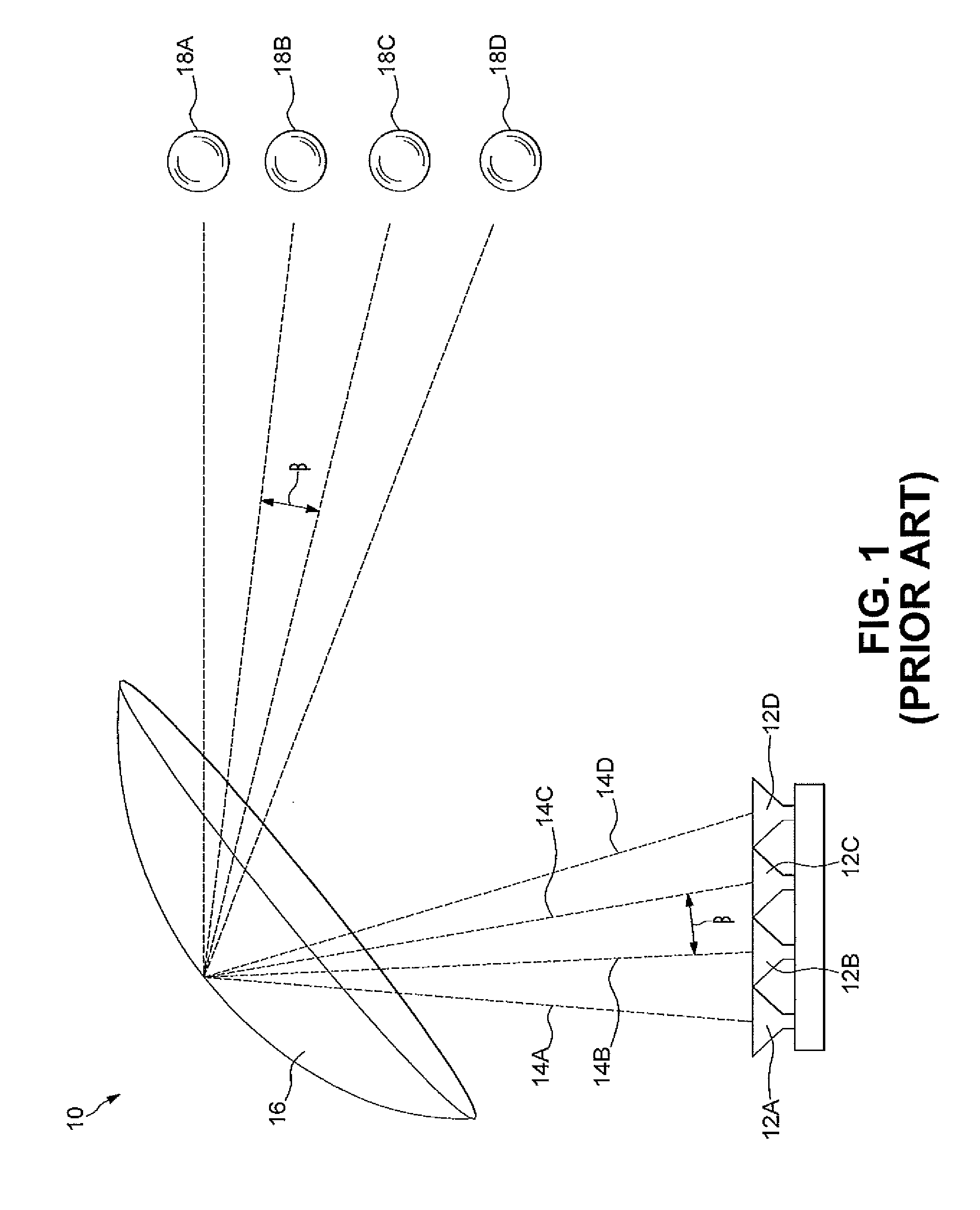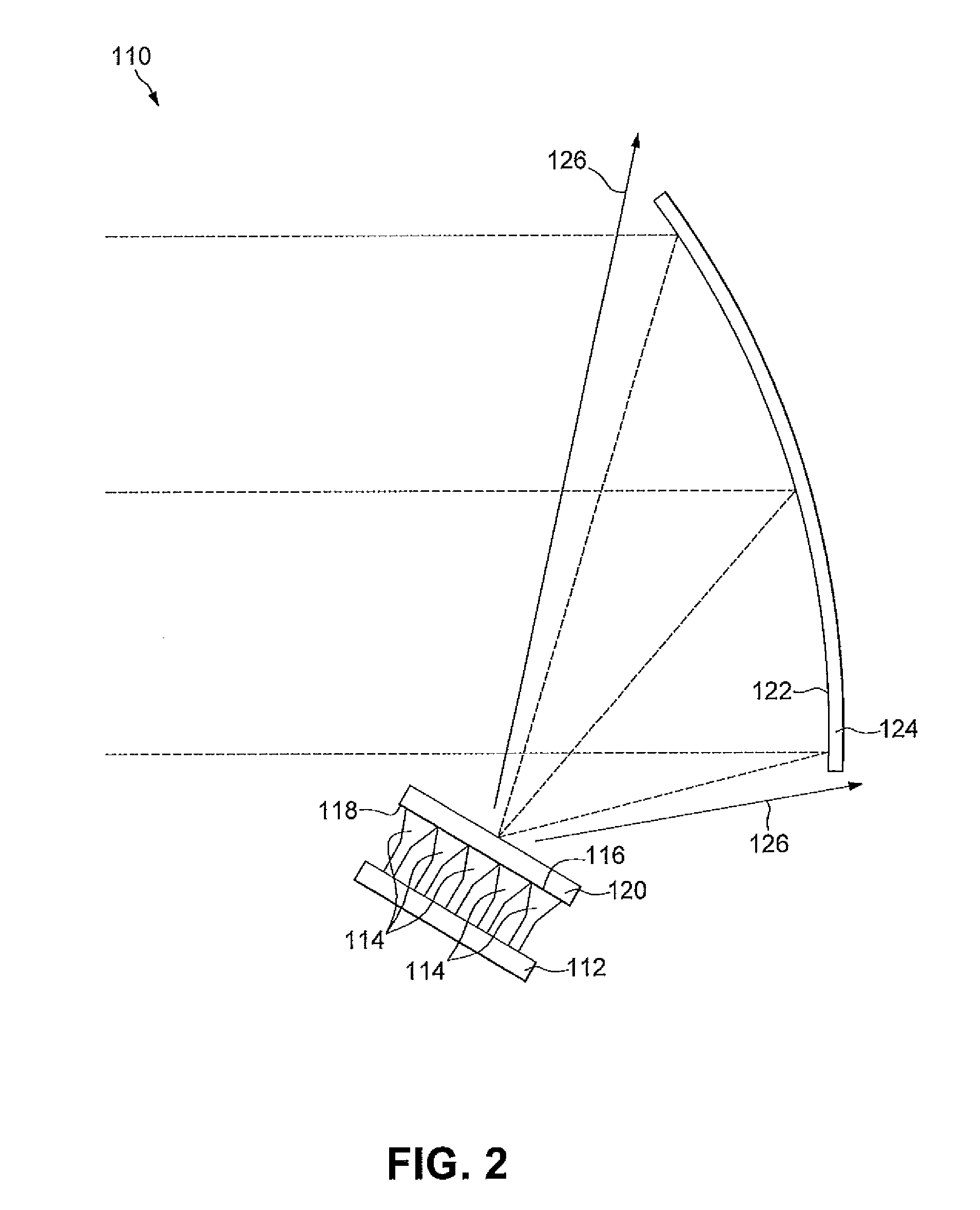Metamaterial lens feed for multiple beam antennas
a technology of metal materials and antennas, applied in the field of multibeam reflector antenna systems, can solve the problems of affecting the pattern performance on the ground, limiting the effectiveness of the antenna system, and high cost, and achieve the effect of reducing the mutual coupling of feed signals
- Summary
- Abstract
- Description
- Claims
- Application Information
AI Technical Summary
Benefits of technology
Problems solved by technology
Method used
Image
Examples
Embodiment Construction
[0022]The following detailed description and the appended drawing describe and illustrate various embodiments of the invention. The description and drawings serve to enable one skilled in the art to make and use the invention, and are not intended to limit the scope of the invention in any manner.
[0023]A multiple beam antenna (MBA) reflector system 110 constructed according to the present invention is shown in FIG. 2. A signal feed network 112 includes a plurality of feed horns 114 that each terminate in a feed horn aperture 116. It is understood that each feed horn 114 may be individually optimized for frequency and power as is known in the art, and may be configured for transmission or for reception of signals within a desired frequency band, or for both. It is further understood that the feed horns 114 may generate different or identical waveforms, as desired. Each feed horn aperture 116 abuts a lower surface 118 of a metamaterial lens 120, embodiments of which are further descri...
PUM
 Login to View More
Login to View More Abstract
Description
Claims
Application Information
 Login to View More
Login to View More - R&D
- Intellectual Property
- Life Sciences
- Materials
- Tech Scout
- Unparalleled Data Quality
- Higher Quality Content
- 60% Fewer Hallucinations
Browse by: Latest US Patents, China's latest patents, Technical Efficacy Thesaurus, Application Domain, Technology Topic, Popular Technical Reports.
© 2025 PatSnap. All rights reserved.Legal|Privacy policy|Modern Slavery Act Transparency Statement|Sitemap|About US| Contact US: help@patsnap.com



